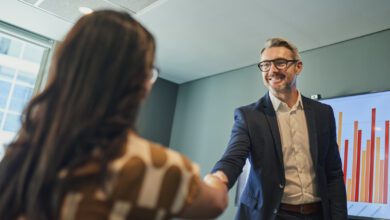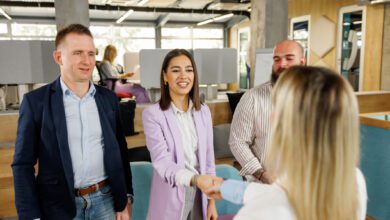
“Walking into the Senate Office Building, and then seeing the staff members who were writing the legislation that I was there to try to influence, is my favorite memory of this past summer,” says Caroline Trier, one of the two IEEE students who participated in the 2017 Washington Internships for Students of Engineering (WISE).
“I still haven’t gotten over the coolness of being with and talking to the people who are making the big legislative decisions,” she enthuses.
This year, IEEE-USA, IEEE Technical Activities and the IEEE Life Members Committee sponsored two WISE interns for the nine-week summer program in Washington, D.C.
Trier is a senior this fall at Washington University in St. Louis, where she’s studying electrical engineering and computer science. Taylor Hetrick, the other IEEE intern, is a senior at Baylor University in Waco, Texas. She is majoring in electrical and computer engineering with minors in mathematics and political science.
Since WISE began in 1980, the program has shown hundreds of the brightest engineering students, from throughout the United States, how engineers can contribute to vital issues involving science, technology and public policy. Each year, the seven societies that sponsor WISE—IEEE/IEEE-USA among them–ensure that the students learn how government officials make decisions on complex technological issues, while at the same time gaining insights about how engineers and scientists can contribute to the legislative process and regulatory decision-making.
To provide the students with further insights on how engineers can contribute to legislative and regulatory public policy decisions, each intern also researches, writes and presents a paper on a public policy issue of particular interest to the sponsoring society.
The two students sponsored this year by IEEE/IEEE-USA recently shared their thoughts about their WISE internships, their aspirations and themselves.
Where are you from? And what do you like best about your hometown?
Hetrick: My family moved to Austin only a few years ago, from Birmingham, Alabama. I like Austin–because there’s so much nature around you, with hiking trails and lakes to paddleboard on. I might not have chosen Baylor University had I not been living in Texas, and I love the small-campus atmosphere. Classes are small, and it’s a supportive environment.
Trier: I’m from Sun Prairie, Wisconsin, a suburb of Madison. I’m still floored by the great educational opportunities I received there, with support for my mathematics abilities. I was able to start taking college-level math courses, starting with my sophomore year in high school. Also, thanks to a county program to attract high school students to biotech, I worked in a research lab at the University of Wisconsin.
Why did you apply for a WISE internship and how do you expect to benefit from it?
Hetrick: When I found the WISE opportunity on a Baylor website, it jumped out at me because of the Washington, D.C. location. I was fascinated with being able to combine my engineering background with history and public policy. Also, I’ll admit that I’m a big fan of television’s The West Wing. The previous summer I’d had a research internship at Texas A&M where I was paired with a professor, chose my own project, and learned about biomedical engineering. The WISE program, which would help me with the public policy side of technology, seemed to compliment my previous intern experience.
I’m benefitting by learning about non-traditional career pathways for an engineering graduate. I’m not yet sure what my path will be, but I’ve had close-up views of different, interesting career options.
Trier: I am very interested in healthcare as a fundamental human right. My previous involvement with Engineers without Borders–at a hospital in Guatemala, and as a co-op student at Siemens Healthineers–heightened my interest in healthcare technologies, and how to make them more affordable, while also maintaining patient safety and product integrity. But I want to serve a greater purpose, and the opportunity to learn about science and technology policy, as well as how it’s set, seemed the right way to go.
The WISE internship is giving me an opportunity to talk to others about how to get involved with federal policy, and you can’t get this information, unless you’re actually in D.C. I’m learning how I can broaden my options, with specific examples of things I can do, and not just in science and technology.
What is the topic of your paper and presentation?
Hetrick: I have been researching and analyzing past federal K-12 STEM initiatives, as well as how STEM could be strengthened, with a broad-based framework. I think the nation needs to shift a little with how educators teach STEM–students need a strong math and science background, but they also need critical thinking skills and a cross-disciplinary mindset.
Trier: My topic is about expanding the access and usage of telehealth. Healthcare is changing and becoming a home-based system, and telehealth is about connecting distant providers to patients through the use of wearable devices and sensors that do away with the need for frequent trips to a clinic. A lot of work still needs to be done; for example, determining what services to reimburse, and how to deploy technology into people’s homes. But people are demanding better healthcare, and the recent healthcare debates increased their interest and awareness.
What have you learned from your WISE internship?
Hetrick: This experience has been great, and grounding–more than I could have imagined. The professional development that comes from meeting a lot of different and interesting people has been very valuable. At a lunch briefing, I sat next to Nancy Pelosi and Chuck Schumer. But I’ve also learned about non-traditional pathways to using my engineering degree. I have many options after graduation, although I’m not sure yet what my path will be.
Trier: I have learned the process of federal government–who is responsible for what, although it’s not just a matter of who handles it, but also the process it goes through. It helped me understand how to better interface and negotiate with that process. Also, the research for my paper and presentation has been a wonderful opportunity. It’s made me feel like a little bit of an expert on something.
How do you see your career unfolding after you have completed your studies?
Hetrick: My career could be in policy, because I have always loved the public sector, and the prospect of working in government. But I may want to go to graduate school, perhaps studying computers and scientific policy.
Trier: I will probably work after graduation. Graduate school interests me, but first you need to know what you want to go to graduate school for, and I don’t.
How are you spending your free time this summer?
Hetrick: There have been so many things to do–from walking past the monuments and paddleboarding on the Potomac–to seeing The Sound of Music at the Kennedy Center, and picnicking with the other interns on the National Mall. The night of July 3, we attended the Capital Fourth concert rehearsal; and on the Fourth, we all had a cookout and watched the fireworks from the Tidal Basin next to the Jefferson Memorial. We also went together to the Congressional Baseball Game; and as we were leaving, we realized we were walking next to Ted Cruz.
Trier: The group of WISE interns–eight women and two men–has been tight. We have gone where the group mentality has taken us–whether to museums, having a domino night, or running from Georgetown to the end of the Mall. We’ve just liked each other’s company. I would like to thank IEEE, and all the people who support the WISE program for this opportunity.
Helen Horwitz is an award-winning freelance writer who lives in Albuquerque, N.M. She was with IEEE from 1991 through 2011, the first nine as Staff Director, IEEE Corporate Communications.






